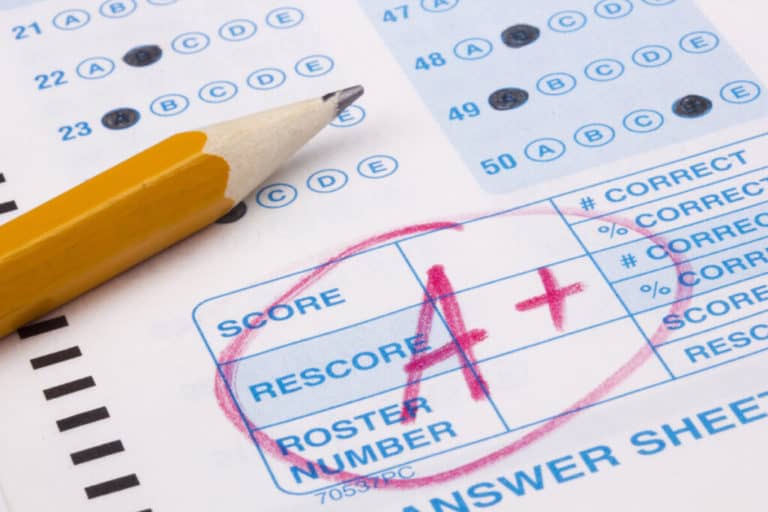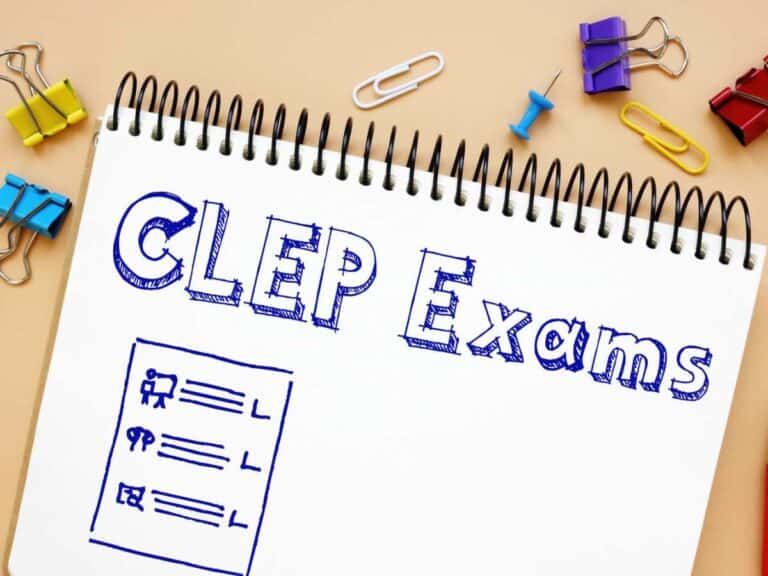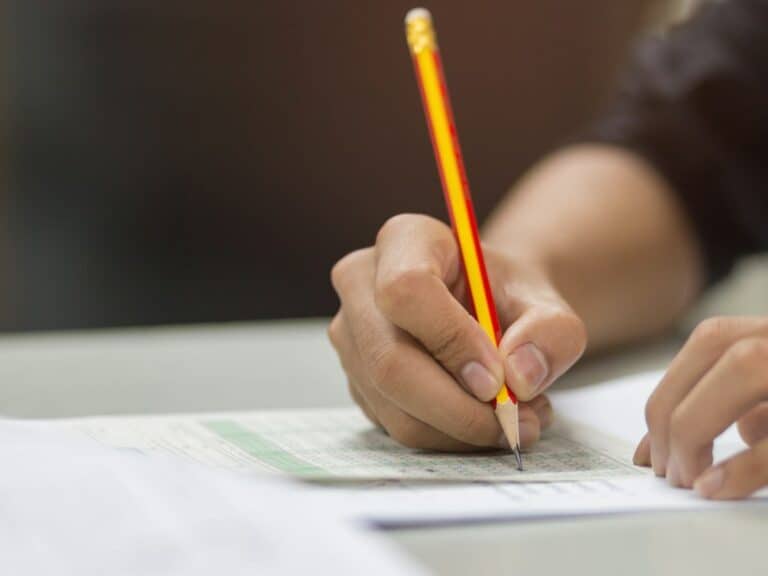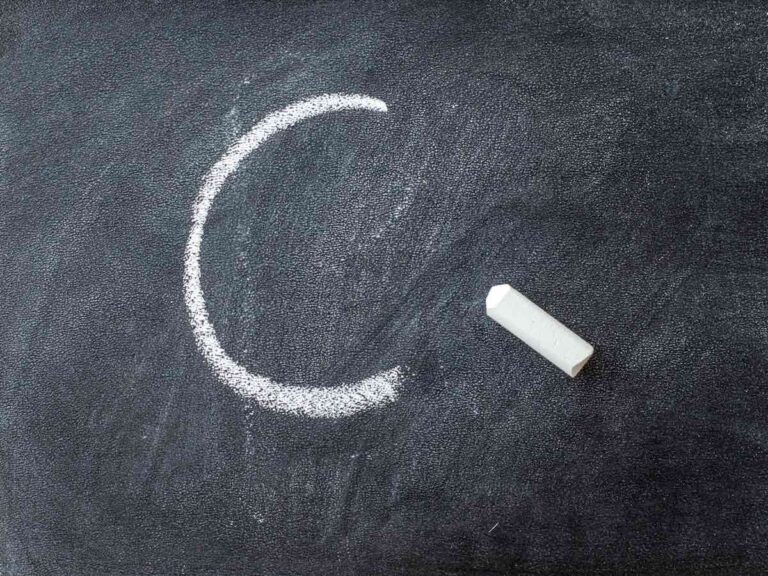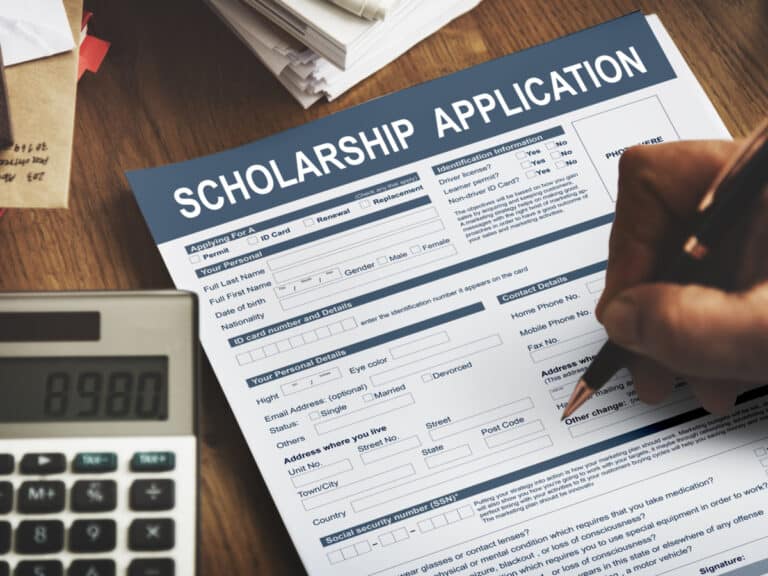10 Things to Do Just Before Taking Any Test or Exam
It’s perfectly normal to feel nervous before an exam. In fact, it’s good to be a little anxious as it can help sharpen your mind and enhance your focus, thus increasing your chances of getting a high score. But it’s an entirely different story if you are incredibly nervous, which can be kept to a minimum by gearing up very well for the big day.
As a general rule, lightly reviewing, preparing the necessary materials, and getting a good night’s sleep are three must-dos before taking any test or exam. The following morning, waking up early, having a healthy breakfast, and getting to the venue in advance is important.
Staying calm and positive is essential during the test.
Exams are important as they help point out your strengths and weaknesses. They also encourage you to develop diligence, perseverance, patience and many other qualities that can help you succeed beyond school.
Instead of complaining about difficult tests that come one after the other, it’s a much better idea to do your best to ace every exam that comes your way.
Below, you will come across 10 things to do just before taking a test. We will answer an assortment of questions, from “when should I start studying?” to “what should I do one hour before an exam?”
But before anything else, let’s clear things up:
- What this article is. This article will share some definitive tips and tricks on boosting your chances of getting a score enough to impress yourself, your teacher, or the admissions officers at your dream college. You can apply everything you will learn here, whether you are about to take a chemistry quiz or the SAT.
- What this article isn’t. This article isn’t going to cover studying for a test in advance. Ideally, you should prepare for an exam anywhere from three days to three months, depending on what test you will take. As a matter of fact, this article will start by giving you tips for the night before the exam.
Now that you know what this article is and isn’t, let’s get started!
Do a Light Review of the Test Material

First things first: you should study for a test several days to a few months in advance. This will let you cover everything included in the test and allow you plenty of time to learn and memorize them, too.
Studying everything that needs to be studied the night before the exam day won’t work!
Besides, you will need to give your brain enough time to rest. In a few, we will discuss why getting seven to nine hours of sleep is a must before an exam — so keep on reading.
However, it doesn’t mean that there is no need to study before bedtime. Before hopping into bed, it’s a great idea to lightly review things that you are still struggling with. Then, to help you learn them better, write them by hand as it can help improve memory.
Never use the night as a full-blown study session.
Otherwise, you might end up facing the test the next day with an exhausted brain, thus keeping you from getting the score that you want or need.
Prepare Materials a Night Before Test
There’s no denying that preparation is vital for a successful exam. It’s not just your mind that you should prepare but also the materials that you will need for test-taking.
It’s the night before the important day when you should get everything you’ll need to have. This can help save you from being stressed the following day, gathering all of them. Also, more importantly, it can help keep you from forgetting something and having to go back home to get it.
Some of the things that you might need to bring are:
- Sharpened #2 pencils. Bring two to three of them to be safe.
- Eraser. The eraser at the other end of a pencil may damage the answer sheet.
- Handheld sharpener. It’s a good idea to sharpen all your pencils before taking a test.
- Calculator. Check in advance if the model of your calculator is allowed.
Depending on the test, you might also need to bring with you a photo ID and drinks and snacks. Make sure that you research the things that you will need to have for the exam.
Reduce Stress by Watching TV or Listening Music
It’s no secret that test-taking is one of the most stressful and nerve-racking things about going to school. This is most especially true for exams that can substantially impact your life as a student, such as midterms and finals and standardized ones like the SAT and ACT.
There is no other way to score high on an exam than studying days or even months in advance.
But the night before a test, as mentioned earlier, a light review is the only thing you need to do — your brain needs to be given the opportunity to rest and recuperate, thus allowing it to perform optimally during the exam.
The importance of de-stressing cannot be stressed enough. Luckily, there are many things that you may do to get rid of exam-related stress and anxiety. Some wonderful examples are:
- Watching a couple of episodes of your favorite TV sitcom.
- Checking out a handful of funny cat videos on YouTube.
- Listening to a few songs by your preferred artist.
- Reading a few pages of a new sci-fi paperback novel.
- Engaging in your chosen handicraft.
- Painting a picture using your kind of medium.
- Soaking in a warm bath with soothing essential oils.
No matter which stress-busting activity you partake in, pretend like there’s no exam to take tomorrow.
Besides, lowering your stress and anxiety levels can make it so much easier to have another must-have the night before taking a test, and we will talk about it next.
Sleep at Least 7-8 Hours
Refrain from assuming that spending the night in front of piles of study materials than in dreamland will help you get the test score of your wildest dreams.

Did you know that, based on research, students who sleep more tend to get better grades?
It’s because of this why pulling an all-nighter is strongly discouraged — you should spend one to two hours per day a few days before the test date arrives rather than give up sleeping the night before. If you don’t know the most important pieces of information by the night before the test, you will never know them.
Generally speaking, it’s a good idea to have seven to nine hours of high-quality sleep before the grand day.
Still, it’s a case-to-case basis.
For example, some students might need nine long hours of sleep for their minds and bodies to perform the following day optimally, while others might do just fine having five or six hours of sleep.
No one knows how much sleep you need more than you, but a rule of thumb is at least 7-8 hours of sleep is needed for most people.
But before you call it a night, make sure that you set an alarm or two. It’s also a good idea to get a family member or friend, particularly one who’s a morning lark, to give you a call in the morning.
Wake Up At Least an Hour Before Test
It’s not enough that you get seven to nine hours of sleep the night before an exam. It’s of utmost importance that you wake up early on the day of the test, too, and it’s for a couple of reasons:
- To make sure that you won’t be late for the exam. There is no use in preparing for an important test for days if you won’t be able to get to the venue on time.
- To give your brain enough time to boot up. Sleep experts say that it takes about 30 minutes to one hour after waking up before your brain can function very well.
However, it doesn’t mean that you should wake up only 30 to 60 minutes before the test starts. You should also consider the time it will take for you to gear up for the challenge ahead and the time it will take for you to get to the exam venue, be it your own school, another school, or a test center.
You should also wake up early enough to have the time to hit the shower. Many studies have proven that people who shower in the morning are more alert and less stressed.
Besides, waking up early will also give you enough time to carry out the next vital step before a test.
Eat Breakfast Rich in Grains, Fat and Protein
It is said that breakfast is the most important meal of the day. Similarly, having breakfast can spell the difference between a phenomenal and an abysmal test score.
According to research, students who eat breakfast perform so much better in exams.
But don’t just eat anything that you can get your hands on before you head out and take your test. Your breakfast must include foods that supply your mind and body with nutrients that can help boost your test performance.
Some of those that you should eat for breakfast include:
- Whole grains. Oatmeal, quinoa, millet, brown rice, whole-wheat bread, whole-grain breakfast cereals — all of these can give you a steady dose of energy throughout the exam.
- Protein. With the optional tests, the SAT can take three hours and 50 minutes, and the ACT can take three hours and 30 minutes to complete. To keep your tummy from complaining, it’s a good idea to have some protein for breakfast. Eggs, yogurt, cottage cheese and turkey sausage are all good sources of protein.
- Healthy fat. Your brain needs fat for proper functioning. But don’t just have any fat if you want nothing but a stellar test score — ensure that you opt for healthy fat like peanut butter, avocado and salmon.
For best results, it’s not just your breakfast on the day of a test that should be healthy. It’s a must for your every meal to be nutritious and well-balanced, too, especially when you start studying for it.
Head Out in Advance to Avoid Stress of Being Late
If you arrive at the test center after the SAT or ACT test has started, you won’t be let in — you will have to reschedule your test, which doesn’t come free of charge and can definitely leave you feeling frustrated and defeated. If you arrive late for the biology test, the teacher might turn you away or let you make do with the remaining time.
There is no point in being completely prepared for a test if you are tardy.
One very common excuse for being late is traffic-related issues. If you live in the heart of the city or the test will start right after rush hour, it’s a must that you head to the venue ahead of time. On any test day, it’s a much better idea to arrive earlier than everybody else, including the proctor, than to fail to have the chance to take the exam.
Besides, arriving early gives you plenty of time to calm down. In a few, you will learn why it’s important to lower your stress and anxiety levels just before you begin to fill in those bubbles — so don’t stop reading now.
Use the Bathroom If You Had Soda or Coffee
Before the test starts, it’s a good idea to head to the bathroom and pee so that you don’t have to do so right in the middle of the exam, thus keeping you from finishing on time.
Many students consume coffee, soda, energy drinks and other caffeinated beverages to stay awake and focused during an exam. However, it’s not really a good idea to drink anything that has caffeine, especially in large amounts.
There are a couple of reasons why you should steer clear of caffeinated beverages:
- They will make you even more anxious. As mentioned earlier, a little nervousness can work to your advantage. Too much anxiety, on the other hand, can have an unfavorable effect on your score.
- They will make you urinate a lot. Caffeine is a diuretic, which means that it can cause increased urine production. Because a test is usually timed, going to the bathroom often to pee is not an option.
It can be hard to focus on your exam if your bladder is constantly grabbing your attention. To keep that from happening, refrain from consuming caffeinated beverages before the test. Believe it or not, staying hydrated by drinking water can help you stay awake and energized throughout the exam.
But remember to take small sips of water only to keep at bay constant bathroom trips.
Calm the Mind and Body

As the test time comes closer and closer, it can be easy for students to feel even more nervous. Again, it’s completely normal to feel a little anxious, whether you prepared a lot or prepared insufficiently for the exam.
What should I do one just before the SAT or ACT test?
The only helpful thing you can do an hour before the test is trying to calm down. The best technique to calm down before taking a test is standing in Wonder Woman pose for several minutes. A Wonder Woman is known to decrease cortisol (stress hormone) and increase testosterone (dominance hormone).
This is a question that may pop into your head no matter if you are already at the venue or still on your way. Well, the best way to spend the time you have left before the proctor announces “you may begin!” is to keep your anxiety levels to a bare minimum.
Last-minute cramming is a complete waste of time because it’s unlikely that you will remember everything.
So, instead of going through your review notes at lightning speeds, which will not help you get a better score, do any or some of the following proven-effective tips on calming your mind and body, too:
- Take slow deep breaths. A quick way to lower your respiratory rate for optimum relaxation is by doing the box breathing. Inhale slowly through your nose to the count of four, hold your breath for four seconds, exhale via your mouth to the count of four, and hold your breath for four seconds. Repeat until you feel relaxed.
- Hum. Believe it or not, your voice box is connected to your vagus nerve, a very long nerve that can trigger a relaxation response. This is why humming, especially your favorite songs, can help you stay calm before an exam. It’s for the same reason why making “om” sounds while meditating works.
- Do a power pose. Lacking self-confidence can leave you anxious before a test. A quick way to boost your self-confidence is by doing a power pose, also called Wonder Woman or Superman pose. Stand up straight, spread your legs, place your hands on your hips and puff out your chest — pretty much the pose a superhero makes upon arriving at the scene.
Think Positively
Your test score does not define you. It’s because of this exactly why colleges, including highly selective ones, take a look at other things than just GPAs and SAT and ACT scores. Still, it’s nice to get a high test score, especially if you have prepared really well for the exam.
Want proof? Read here about “passing” SAT tests without studying and here about low and high ACT scores.
According to research, the brain is around 31% more productive than when it is in a negative state.
It’s due to this why you should maintain a positive mindset before and during the exam — with a more productive brain, you will be able to analyze questions so much better and recall important information without much trouble. Positive thinking also gives you much-needed self-confidence so that you won’t be tempted to quit.
On the other hand, negative thinking can make you feel down and stressed, and feeling down and stressed can make you think even more negatively. It’s a vicious circle!
And before the test starts, stay away from people who feel that they will fail the exam for sure — negative mindsets and emotions can be highly contagious.
Just Before You Take a Test
Never use the night before an exam for studying everything that needs to be studied. As a matter of fact, it’s best spent relaxing your mind and getting a good night’s sleep.
Above, we talked about 10 of the things to do just before taking a test. The majority of them have to be carried out immediately before the exam starts, such as using the bathroom, calming down, and thinking positively. By pairing the tips above with enough studying, acing the test — any kind of test — should be easy. Good luck!
Disclaimer: The views and opinions expressed in this article are those of the authors and do not necessarily represent those of the College Reality Check.
